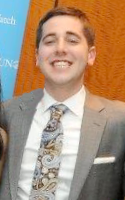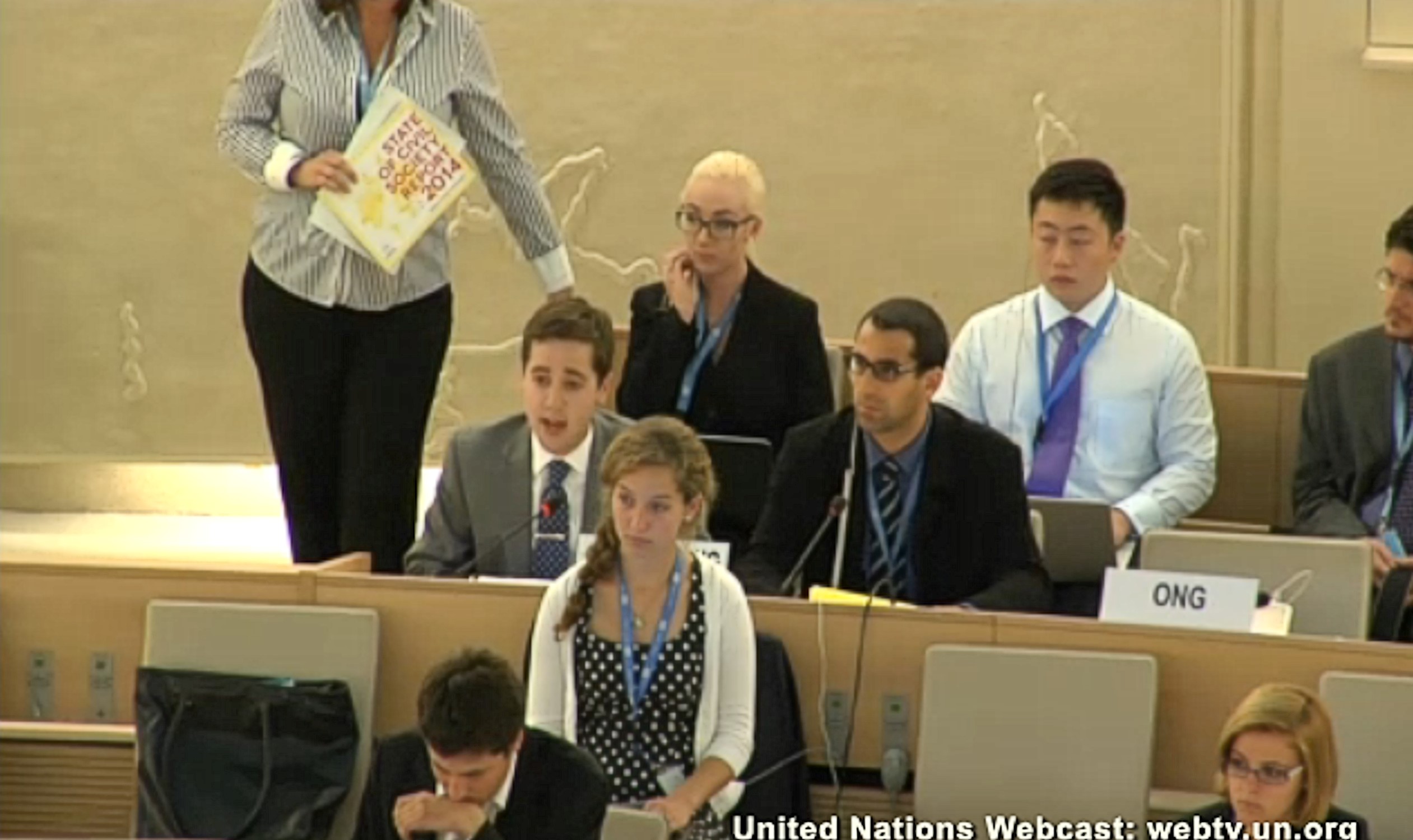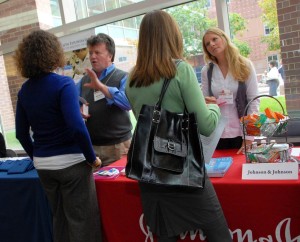This is the next in a series of posts by recipients of the Career Services Summer Funding grant. We’ve asked funding recipients to reflect on their summer experiences and talk about the industries in which they’ve been spending the summer. You can read the entire series here.
This blog is by Benjamin Fogel, CAS ’17
 I had the incredible opportunity this summer to attend the entirety of the 26th Regular Session of the United Nations Human Rights Council (UNHRC) in Geneva, Switzerland. I worked for United Nations Watch, a non-governmental organization with Special Consultative Status to the UN Economic and Social Council (ECOSOC). My responsibilities included closely observing the progress of the Council, following debate and tracking the resolutions that the Council ultimately adopted or rejected.
I had the incredible opportunity this summer to attend the entirety of the 26th Regular Session of the United Nations Human Rights Council (UNHRC) in Geneva, Switzerland. I worked for United Nations Watch, a non-governmental organization with Special Consultative Status to the UN Economic and Social Council (ECOSOC). My responsibilities included closely observing the progress of the Council, following debate and tracking the resolutions that the Council ultimately adopted or rejected.
Working this summer at the UN was an extraordinary adventure and an invaluable experience. It is not uncommon for students to open a textbook and read about international relations or hear a harrowing tale about the plight of others around the world but to be able to live global diplomacy and speak directly to victims of grave human rights abuses is something that I will never forget. I learned that despite living in the hyper-connected, globalized 21st century, misconceptions about the UN and the world as a whole are ubiquitous. Many common assumptions I held about the world, global politics, and what it means to uphold human rights were challenged during my work and forced me to face those realities.
The highlight of my time at the UN was on June 18th, when, in front of the main session of the UNHRC, I testified on the “Situation of Human Rights in Belarus.” Leading up to my speech, I tracked the discussion in the international community regarding human rights in Belarus by attending numerous meetings sponsored by human rights organizations, various nations and bodies (such as the EU), speaking to human rights activists and victims of human rights abuses from Belarus, and listening to experts on the matter. Hearing the President of the UNHRC give me the floor to speak, seeing delegates from countries around the world turn around to listen to what I had to say and then hearing my voice echo throughout the room was an unparalleled feeling. In that brief moment, I had the power to be heard on the international stage, the responsibility to speak out on behalf of the people of Belarus and was as important as anyone else in the room. It was a glimpse into the real working world of international affairs.
Being at the UN was an eye-opening experience that taught me about the importance of keeping an open mind and the necessity of being adaptable and responsive in order to draw intelligent, comprehensive and honest conclusions about a subject. Since the UN comprises various components of State governments, international bureaucracies and civil society, I was compelled to adjust my perspective in order to fully grasp and comprehend the many working parts of the UNHRC that incorporate its modus operandi. I observed firsthand the discrepancy between the genuine truth and the facade many believe because of coordinated deception or willful ignorance.
I am immensely grateful to the University of Pennsylvania Career Services for supporting this opportunity and me. I will be able to take this experience and the lessons I learned from it and apply it to my future academic and career endeavors. This was surely a summer I will look back on as a significant moment in my intellectual and vocational development.



 and the people within the network know and trust them. The best time to network from a career perspective is when you are not actively looking for a job. You have more time, and you come across as less desperate. If you work hard to help people remember you by staying in contact, then you increase the likelihood that they’ll be thinking of you when future job opportunities arise. So, take time at career fairs to share your information with people in different career fields, think of creative ways to maintain contact with them over time to establish an effective relationship, and ask the most important question of all to gain access to their network: “Do you anyone you think I should talk with to find out more information?“
and the people within the network know and trust them. The best time to network from a career perspective is when you are not actively looking for a job. You have more time, and you come across as less desperate. If you work hard to help people remember you by staying in contact, then you increase the likelihood that they’ll be thinking of you when future job opportunities arise. So, take time at career fairs to share your information with people in different career fields, think of creative ways to maintain contact with them over time to establish an effective relationship, and ask the most important question of all to gain access to their network: “Do you anyone you think I should talk with to find out more information?“